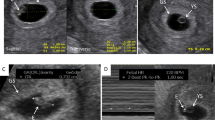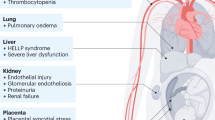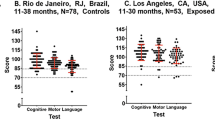Abstract
OBJECTIVE:
This paper reports a case of chorioamnionitis due to Morganella morganii in a mother who presented with ruptured membranes at 24 weeks’ gestation and was treated with dexamethasone and prophylactic ampicillin. Her premature infant developed severe early onset infection due to the same organism and expired.
STUDY DESIGN:
A clinical case report of M. morganii infection complicating preterm rupture of membranes is presented. Possible risk factors for maternal and neonatal infection with this organism as well as the therapy of neonatal M. morganii infection are discussed.
RESULTS:
Risk factors in the mother included having a cervical cerclage in place and treatment with dexamethasone and prophylactic ampicillin. The major risk factors in the infant were maternal chorioamnionitis and extreme prematurity. The mother responded to treatment with ampicillin, metronidazole, and gentamicin following delivery and had an uncomplicated recovery. Her infant developed severe early onset M. morganii infection complicated by neutropenia, thrombocytopenia, and severe acidosis and expired. Postmortem cultures of pleural fluid, peritoneal fluid, and blood were positive despite treatment with gentamicin, an antibiotic to which the organism was sensitive.
CONCLUSION: M. morganii may cause serious infection in pregnancy and in the neonatal period. The use of dexamethasone and prophylactic ampicillin may have increased the risk of infection with this ampicillin-resistant organism. The failure of gentamicin to sterilize the infant’s blood and body fluids emphasizes the necessity of treating such infections with a combination of an aminoglycoside and a third-generation cephalosporin, such as cefotaxime.
This is a preview of subscription content, access via your institution
Access options
Subscribe to this journal
Receive 12 print issues and online access
$259.00 per year
only $21.58 per issue
Buy this article
- Purchase on Springer Link
- Instant access to full article PDF
Prices may be subject to local taxes which are calculated during checkout
Similar content being viewed by others
Author information
Authors and Affiliations
Rights and permissions
About this article
Cite this article
Ranu, S., Valencia, G. & Piecuch, S. Fatal Early Onset Infection in an Extremely Low Birth Weight Infant due to Morganella morganii. J Perinatol 19, 533–535 (1999). https://doi.org/10.1038/sj.jp.7200230
Published:
Issue Date:
DOI: https://doi.org/10.1038/sj.jp.7200230
This article is cited by
-
Infected cephalohematomas and underlying osteomyelitis: a case-based review
Child's Nervous System (2016)



